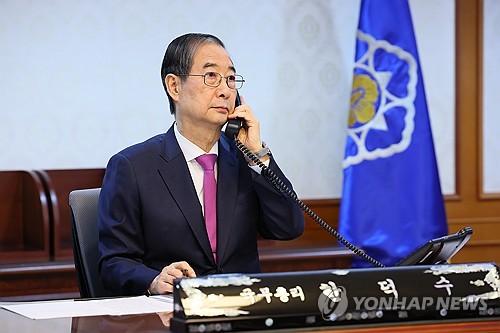Ex-Trump official suggests Trump's tariffs on S. Korea can be 'altered over time' through talks
By Kim Seung-yeon
SEOUL, April 3 (Yonhap) -- The newly announced U.S. "reciprocal" tariff on South Korea can be a starting point in Seoul's negotiations with Washington over trade issues and possibly be changed through dialogue in the coming days, a former U.S. official said Thursday.
Fred Fleitz, a former chief of staff of the National Security Council under the previous Trump administration, made the suggestion after Trump's announcement Wednesday (U.S. time) to impose a 26 percent reciprocal tariff on South Korea starting next Wednesday, as he seeks to reduce America's trade deficits and bolster domestic manufacturing.
"I think this (tariff announcement) is the opening salvo in negotiations," Fleitz, vice chair of the America First Policy Institute, said during a forum hosted by the Sejong Institute in Seoul.
"This is something that will be negotiated and altered over time. It does reflect Trump's position that trade can't just be free, but fair," he said.
"He does think America has been taken advantage of by many nations and he's trying to settle the score," Fleitz said.
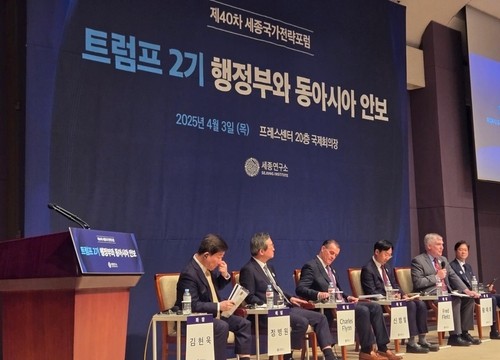
Fred Fleitz (2nd from R), a former chief of staff of the National Security Council and vice chair of the America First Policy Institute, speaks during a forum hosted by the Sejong Institute in Seoul on April 3, 2025. (Yonhap)
The country-by-country duties, including 34 percent for China, 24 percent for Japan, 20 percent for the European Union, and others, are seen as a culmination of Trump's drive to rectify what he has described as countries "having ripped off" America for too long.
The much-anticipated announcement has added to uncertainties in South Korea, an export-dependent economy, over the future of its relationship with the United States, at a time when Seoul has been embroiled in a political crisis caused by now-impeached President Yoon Suk Yeol's brief martial law imposition last December.
On the bilateral alliance, Fleitz stressed that Trump supports alliances, despite much skepticism held by U.S. allies, and suggested that the relationship with the U.S. offers many opportunities to South Korea under this Trump administration in a way that will improve security and economically benefit both nations.
"Shipbuilding is a big one. America desperately needs help in building naval vessels ... (it) needs South Korea's help in doing this," he said.
Fleitz also expressed hope that South Korea will participate in the envisioned Alaska liquefied natural gas project being pushed for by Trump, saying it will help Seoul reduce its dependence on Russian gas and oil from the Middle East.
"It's a big deal for Trump, I hope this will be a priority for the next South Korean government," he said.
On the possibility of Trump resuming nuclear dialogue with North Korean leader Kim Jong-un, Fleitz suggested that the success of U.S. efforts to end the war in Ukraine could play a role in making it happen.
"It could be the success of American efforts to end the war in Ukraine will be an important factor to resume negotiations with North Korea," he said.
"If Trump can bring Russia back into the international community, maybe lower sanctions in exchange for Russia paying for reconstruction of Ukraine ... There are all kinds of possibilities," Fleitz said.
elly@yna.co.kr
(END)
-
 Park Hae-soo calls villainous role in Netflix's 'Karma' 'liberating'
Park Hae-soo calls villainous role in Netflix's 'Karma' 'liberating' -
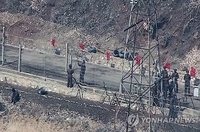 (2nd LD) S. Korea's military fires warning shots at N. Korean soldiers as they cross military demarcation line
(2nd LD) S. Korea's military fires warning shots at N. Korean soldiers as they cross military demarcation line -
 Drone-helicopter collision caused by sudden gust of wind: military
Drone-helicopter collision caused by sudden gust of wind: military -
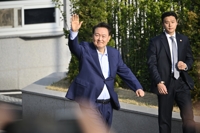 (LEAD) Ex-president Yoon moves to private home 1 week after ouster
(LEAD) Ex-president Yoon moves to private home 1 week after ouster -
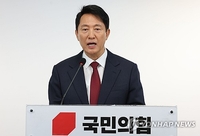 (LEAD) Seoul Mayor Oh Se-hoon to not run for president
(LEAD) Seoul Mayor Oh Se-hoon to not run for president
-
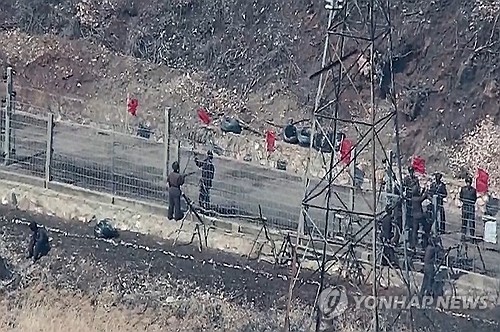 (2nd LD) S. Korea's military fires warning shots at N. Korean soldiers as they cross military demarcation line
(2nd LD) S. Korea's military fires warning shots at N. Korean soldiers as they cross military demarcation line -
 Park Hae-soo calls villainous role in Netflix's 'Karma' 'liberating'
Park Hae-soo calls villainous role in Netflix's 'Karma' 'liberating' -
 San Francisco's Lee Jung-hoo falls homer shy of cycle in 3-hit game
San Francisco's Lee Jung-hoo falls homer shy of cycle in 3-hit game -
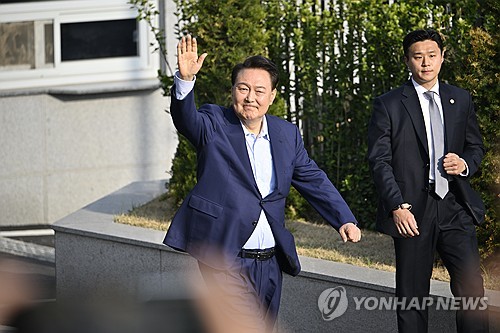 (LEAD) Ex-president Yoon moves to private home 1 week after ouster
(LEAD) Ex-president Yoon moves to private home 1 week after ouster -
 (LEAD) Acting president appoints 9th justice to Constitutional Court, names successors to retiring judges
(LEAD) Acting president appoints 9th justice to Constitutional Court, names successors to retiring judges
-
 Strong winds sweep across S. Korea, causing damage
Strong winds sweep across S. Korea, causing damage -
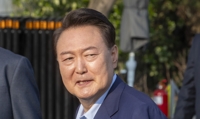 Ex-President Yoon faces criminal trial on insurrection charges Monday
Ex-President Yoon faces criminal trial on insurrection charges Monday -
 (LEAD) Ex-President Yoon attends first criminal trial on insurrection charges
(LEAD) Ex-President Yoon attends first criminal trial on insurrection charges -
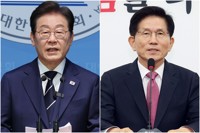 Former DP leader Lee leads presidential election poll
Former DP leader Lee leads presidential election poll -
 (2nd LD) Ex-President Yoon denies insurrection charges at first criminal trial
(2nd LD) Ex-President Yoon denies insurrection charges at first criminal trial






